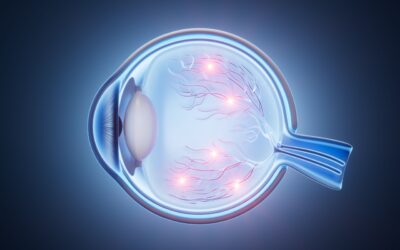Toxicity studies are vital to the drug discovery process. Through rigorous testing, researchers compile all the necessary data to understand a new drug’s safety profile and advance it toward patient use.
Before drugs are approved for clinical testing, researchers utilize several safety studies to establish precisely how toxic the product is at various doses and over different time periods. These studies monitor the overall response to a drug, any adverse reactions in target organs, dose dependence, and sometimes potential reversibility.
Data from safety studies is used to determine the safe starting dosage for clinical trials. Once trials in humans begin, the information is also used to establish the parameters needed to monitor for any potential side effects.
If any serious adverse events occur during clinical or nonclinical trials, studies can be discontinued, and close scrutiny will be placed on whether the study design was correct and whether the compound was proven safe enough for further testing. Efficient and comprehensive toxicology studies form the bedrock of any drug’s regulatory approval, and they’re only getting more critical as our understanding of drug interactions and human biology becomes more complex.
Toxicity studies in detail
There are many types of toxicity studies. If regulators are to green-light human trials, these must be completed in preclinical testing. They include:
- Acute toxicity studies are part of a general toxicity studies program. They help define new drugs’ toxicity by determining the potential adverse effects of a single dose or multiple doses administered over a very short period. Historically, this information has been gathered from studies in two mammalian species using both the clinical and parenteral routes of administration. However, this can now be obtained from dose-escalation studies or short-duration dose-ranging studies that define a maximum tolerated dose (MTD) in the general toxicity species.
- Safety pharmacology studies assess the trial drug’s effect on the major physiological systems of the human body, like the heart, lungs, and central nervous system. They’re usually only conducted before clinical trials, but in some instances, additional pharmacology studies are carried out during clinical development if deemed necessary. In vivo and in vitro assays are used for these studies. Regulators tend to encourage fewer in vivo studies to limit animal use where possible. In vitro assays can include isolated tissue or organ studies, such as isolated heart models, to study the drug’s cardiac effects.
- Repeated dose toxicity studies aim to assess the effects of repeated exposure to a new drug over a short period. The recommended duration of repeated-dose toxicity studies is usually directly linked to the duration and scope of the proposed clinical trial. The course is usually 14-28 days. Repeated dose toxicity studies provide detailed information on the toxicity of potential target organs, the exposure, and the potential toxic effects.
Other types of toxicity testing must also be completed, including toxicokinetic and pharmacokinetic. Carcinogenicity studies focus on whether the drug candidate has the potential to cause cancer, genotoxicity studies evaluate whether the drug can cause genetic mutations, and reproductive and developmental toxicity studies focus on potential harm to the reproductive and developmental functions of the human body.
Advances in toxicity testing
Toxicity testing remains a crucial element in drug development, and future advancements in technology promise to simplify the task and improve results. Traditionally, toxicity studies have relied heavily on animal testing, but significant changes are on the horizon, aligned with the three Rs approach: replace, reduce, and refine, which is gaining support worldwide.
Increased computing power is set to revolutionize toxicity testing. Enhanced computational models can make more accurate predictions regarding toxicity, thereby speeding up the testing process. Additionally, high-throughput screening techniques are improving in vitro testing, allowing for the rapid assessment of numerous compounds simultaneously.
These advancements hold the promise of more efficient, ethical, and accurate toxicity testing, ultimately accelerating the drug development process and bringing safer pharmaceuticals to market faster.
A final word
Toxicity studies are a crucial hurdle any developer must overcome to make it to clinical trials. Any inefficiencies at this stage can cost manufacturers time and money, and if they go unnoticed, they can even cost lives. As medicine advances at an increasingly rapid rate and personalized medicine, AI-enabled drug discovery, and other elements become increasingly important, the role of toxicity studies will become even more paramount. Manufacturers need to conduct thorough and efficient toxicity studies. They would do well to find a trusted and experienced lab partner if they lack in-house resources and expertise to perform these critical studies.


